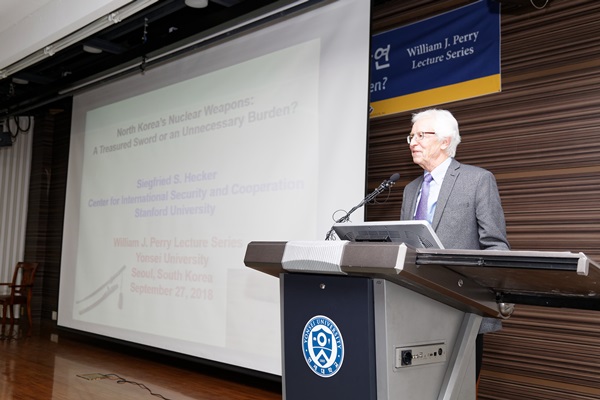- Research on Korea: Discussing North Korea’s Nuclear Weapons October 18, 2018
-
Stanford University nuclear scientist Dr. Siegfried S. Hecker gives special lecture at Yonsei University
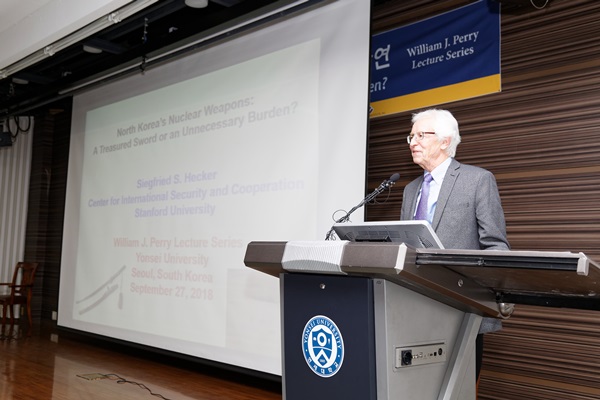
There has been increased interest in the Korean Peninsula, with North Korean leader Kim Jung Un making efforts to dialogue with the U.S. and South Korea, in unprecedented summits in Singapore and Pyongyang just over the past three months.
As part of the William J. Perry Lecture Series, Yonsei University invited Stanford University nuclear scientist Dr. Siegfried S. Hecker to give a special lecture on the topic of North Korea’s nuclear weapons on September 27, 2018.
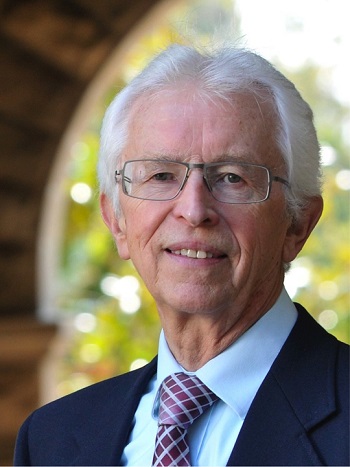
Dr. Siegfried S. Hecker is a professor emeritus (research) in the Department of Management Science and Engineering and a senior fellow emeritus at the Freeman Spogli Institute for International Studies (FSI) at Stanford University. He was co-director of the Center for International Security and Cooperation from 2007–2012. From 1986 to 1997, Dr. Hecker served as the fifth Director of the Los Alamos National Laboratory. Dr. Hecker is an internationally recognized expert in plutonium science, global threat reduction, and nuclear security.
Dr. Hecker, the only foreigner who has ever been inside the laboratory in the Yongbyon nuclear complex, proposed a 10-year roadmap to “halt, roll back and eliminate” North Korea’s nuclear program and to persuade the North to convert its nuclear program for civilian purposes instead. In order to achieve this, he stressed the importance of the U.S. and South Korea keeping their alliance strong and staying close in order to bide the space and time to negotiate. Both countries need to work together to persuade North Korea that nuclear weapons are an unnecessary burden and work with them to convert the military program to civilian programs instead. This would be the turning point in resolving the North Korea nuclear issue.
But how did we even get to this point with North Korea in the first place? This is a country who is sanctioned all over the world which was supposed to discourage them from building its nuclear capabilities. Instead, the country developed its capabilities and conducted more nuclear tests with a greater intensity. Dr. Hecker shared that the Kim leadership was determined to build up their nuclear capabilities so that in case diplomacy didn’t work out, they would have an edge. The aim was to have a nuclear deterrent to keep the U.S. out.
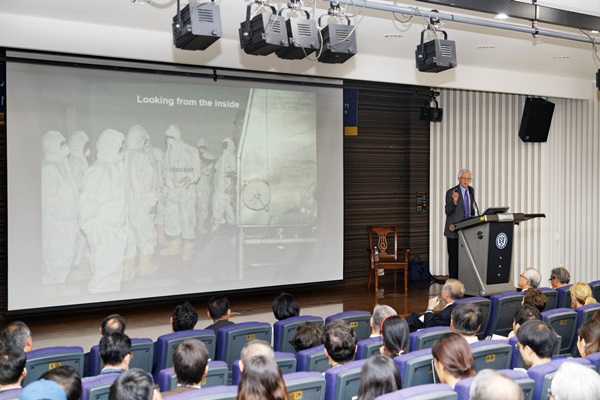
Up until now, North Korea has never been appreciated as a real country, with the U.S. constantly demonizing the country. In fact, it is poor U.S. decisions which have led to the increased tension with North Korea in recent years — over-reliance on sanctions which has shown to have no correlation with both the nuclear program and the economy. Ironically, when sanctions got worse, the North Korean economy improved.
Dr. Hecker reminded the audience that “it is not all of North Korea that is bad” and more empathy is needed in dealing with the country. He shared that the one lesson to learn from the North Korea issue is that it is impossible to solve the problem by focusing only on the nuclear aspect. Instead, the first step to resolving the issue would be to change our relationship with North Korea and build mutual trust. It is only when trust has been established will North Korea consider the possibility that their nuclear weapons are no longer necessary to ensure their survival.
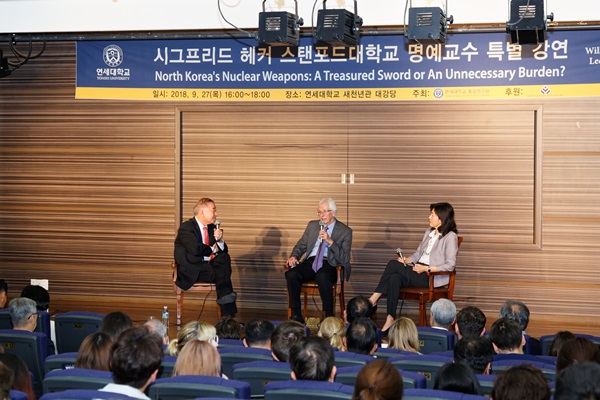
Following the lecture, Dr. Hecker participated in a lively Q&A session led by Chung-In Moon, special advisor for unification, diplomacy and national security affairs for President Moon Jae-in and distinguished professor emeritus at Yonsei University, discussing issues such as the strategic significance of the North Korea’s outdated nuclear facilities and why U.S. intelligence agencies underestimated North Korea’s nuclear program development.
*The William J. Perry Lecture Series was first launched in 2016 and is held annually by the Yonsei Institute for North Korean Studies and Pacific Century Institute.
<Originally published on October 1, 2018>
show mobile menu
mobile menu




